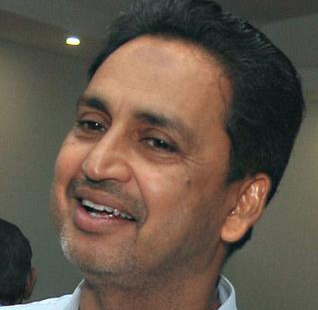Bengaluru, Mar 30: The Karnataka High Court today directed the state government to reprint the invitation card for a festival at Puttur temple after it admitted the error of printing the name of Dakshina Kannada Deputy Commissioner A B Ibrahims name, in violation of Hindu Religious and Charitable Endowments Act.
 A division bench, comprising Chief Justice Subhro Kamal Mukherjee and Justice Ravi Malimath, passed the order, saying that "in order to avoid any controversy and confusion between the devotees and the Deputy Commissioner, the court directs the government to reprint the invitation of the annual festival."
A division bench, comprising Chief Justice Subhro Kamal Mukherjee and Justice Ravi Malimath, passed the order, saying that "in order to avoid any controversy and confusion between the devotees and the Deputy Commissioner, the court directs the government to reprint the invitation of the annual festival."
The bench said that as per Section seven of the Hindu Religious and Charitable Endowments Act, a non-Hindu cannot participate in any such function or event.
"Ibrahim is a non-Hindu and he practises a religion which does not allow idol worship," it added." The court also directs Ibrahim not to participate in any such event in future," the bench said.
A group of devotees of Puttur Mahalingeshwara temple, who had filed the petition, had pointed out that the inclusion of the name of Ibrahim was against the Endowment Act of the government.
Contrary to the earlier stand of defending inclusion of Ibrahim's name in the invitation card, the government admitted its error of doing so before the division bench.
Law and Parliamentary Affairs Minister T B Jayachandra had defended the government's stand by saying that Ibrahim has done nothing wrong and acted in his capacity as the Deputy Commissioner as per the Muzrai Department's rules.
The controversy had created political ripples when Vishwa Hindu Parishad and Bajrang Dal raised objections over the inclusion of Ibrahim's name in the invitation card.
The 10-day festival is held from April 17 every year in the temple at Puttur, 52 km from Manguluru, in which thousands of devotees from various parts of the state, participate.
Printing DC's name on invite was a mistake'
The State government told the High Court that it was a “mistake” to print the name of A.B. Ibrahim, on the invitation card of the annual festival of Puttur Mahalingeshwara temple.
Advocate-General Madhusudan R. Naik made this submission during the hearing on a PIL petition, filed by Mahathobara Sri Mahalingeshwara Devara Bhaktha Samiti, Puttur.
Also, the Advocate-General told a Division Bench, comprising Chief Justice Subhro Kamal Mukherjee and Justice Ravi Malimath, that “the DC concerned [Mr. Ibrahim] will not participate in any religious function of this particular temple.”
The petitioner had complained that Mr. Ibrahim's name was printed in violation of the provisions of the Karnataka Hindu Religious Institutions and Charitable Endowments Act 1997, which makes it mandatory that only officers professing Hindu faith could be given charge of Hindu religious institutions.




Comments
For a silly matter, was it necessary to make such a big issue until knocking HC door.
Our people don't hesitate to waste time, efforts, resources.
when controversy was started the DC himself should have initiated to exclude his name.
Very unfortunate, such a silly matter can not be solved without HC intervention.
Allah Saved DC from sin.....
Good decision by Honorable court. Court recognizes that DC is practicing a religion which does not allow idol worship and can not take part in Temple activities. Same way we should admit that we cannot even chant \Jai Mata Di\", or \"Jai Bharat Mata\" because it is idol praising. But, we have no problem in chanting Hindustan Zindabad, Bharath Ki Jai etc.,"
6.77E+14
zysnz
Good decision of honorable Karnataka high court, satya meva jayathe, finally won Law, satya and dharma.
Add new comment